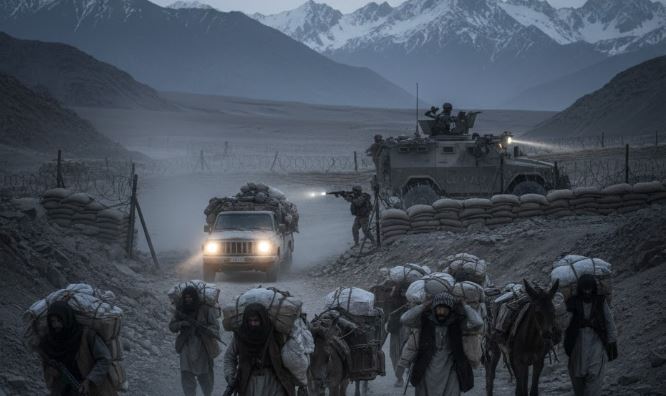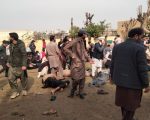It began with compassion. For more than four decades, Pakistan opened its doors to millions of Afghans escaping war, hunger, and despair — not for political gain, but out of shared humanity and faith. The two nations were bound by history, culture, and religion, and Pakistan stood beside its neighbor when the world turned away. But even compassion has limits. That same generosity has now come full circle, leaving Pakistan burdened with a crisis that cuts deep into its economy and security. What began as an act of brotherhood has become a test of survival. Our factories are shutting down, our businesses are being taken away — and all this is happening because people from Afghanistan are deeply involved in smuggling. The smuggling of goods isn’t just a crime; it’s a direct blow to Pakistan’s economy — and ultimately, a loss for every Pakistani. The harsh reality is this — Pakistan’s goodwill has been abused, and the nation is now paying dearly for it.
The economic damage is massive. Under the Afghan Transit Trade Agreement, Pakistan allowed tax-free goods to pass through its ports on their way to Afghanistan. But instead of reaching Afghan markets, much of that cargo — electronics, tyres, clothing, and fuel — slipped back into Pakistan, completely bypassing customs. The result? Local industries were crushed by a flood of untaxed goods they could never compete with. Thousands lost jobs, and Pakistan’s already struggling manufacturing base was hollowed out.
This isn’t small-scale smuggling. It’s a full-fledged shadow economy worth billions. Each truck that crosses unchecked robs the state of vital tax revenue — money that could have gone to schools, hospitals, and development. The government’s crackdown earlier this year revealed the depth of the problem: once tighter border controls were imposed, legal trade through official routes shot up by a staggering *78% in July 2025*. That single statistic says it all — for years, the system was bleeding quietly while illegal traders grew rich.
But the real threat goes far beyond lost revenue. Intelligence reports suggest that the money made from this smuggling doesn’t simply disappear — it’s fueling terrorism and financing networks tied to Pakistan’s adversaries. Certain Afghan elements inside the country are believed to be working in coordination with hostile foreign intelligence agencies, particularly India’s, as well as extremist outfits like Fitna al-Khawarij and Fitna al-Hindustan. What started as a flow of illegal goods has turned into a funding stream for terrorism, targeted killings, and unrest. The same black-market trade that’s crippling Pakistan’s economy is also empowering the very forces trying to undermine its security from within.
Refugee settlements that once represented Pakistan’s compassion have, in some cases, become breeding grounds for crime and extremism. This has created a vicious cycle — the economy bleeds, security worsens, and public anger grows. Pakistan isn’t just fighting two separate challenges; it’s trapped in a single, interconnected crisis draining both its wealth and its safety.
The government can no longer afford to look away. No country can host millions of non-citizens indefinitely when that generosity is being turned against it. Repatriation — as tough and emotional as it may be — is no longer just a policy choice; it’s a necessity. Critics may call it harsh, but it’s a matter of survival. Every sovereign state has the right to protect its borders, its economy, and its people.
And this time, the people are behind the government. Across Pakistan, there’s a growing demand for decisive action. Citizens believe that those who have taken advantage of the country’s goodwill — by smuggling, collaborating with hostile forces, or spreading unrest — have forfeited their right to stay. The mood is clear: enough is enough. People of Afghanistan should go back to their country. We have lost so many civilians and law enforcement agencies personnel because of terrorism supported by Afghanistan.
Pakistan’s generosity was never meant to be endless. Repatriation is not a rejection of humanity — it’s an act of self-respect and national preservation. It’s about regaining control: over the economy, over the law, and over the nation’s future. This moment calls for courage, not words. Sending Afghan nationals home will solve many thing, and it’s a necessary first step toward restoring stability. Charity is noble — but not when it endangers the home that offers it.
For decades, Pakistan has shown compassion beyond measure. Now, it must protect itself — before that compassion becomes its undoing.














